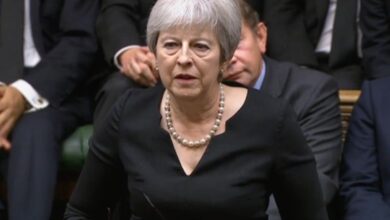Thousands fight demand to return universal credit the goverment claims was wrongly paid during the pandemic

Nearly 15,000 people say they have been wrongly ordered to pay back universal credit payments, as the government attempts to claw back £500m in pandemic benefit handouts.
Many have been told to repay the money in error simply because they missed phone calls or messages from the Department of Work and Pensions (DWP) requesting evidence as it carries out retrospective checks, according to a charity supporting claimants.
The department has told 125,000 people that they were not eligible for the payments, with most being told they owe thousands of pounds, after it suspended face-to-face identity checks at the start of the Covid crisis.
The government has admitted that if an individual “does not provide evidence/fully engage in the process” they could be considered to have received an overpayment. Some have been pursued by private debt collectors. Around 14,500 people are appealing against the payback orders.
Labour’s shadow work and pensions secretary Jonathan Ashworth said: “It’s shameful that ministers are pursuing what could be thousands of people for debt they do not owe, in the middle of a cost of living crisis.
“Instead of parading around supporting their chosen leadership candidates, ministers in the DWP should be focused on their day jobs and solving the pressing problems in their department.”
The number of people on universal credit in the UK doubled in the first year of the pandemic, increasing to 6 million in January 2021. There were 5.6 million people on the benefit in May 2022.
DWP figures show that universal credit fraud overpayment rates are at their highest on record, at 13 per cent (£5.3bn) in 2022, compared with 12.8 per cent (£4.9bn) in 2021, 7.6 per cent in 2020, and 6 per cent in 2019.
Billy Waterworth, 29, started claiming universal credit at the start of the first lockdown after he lost his job as a chef. Within several months he had found another job, and his account was closed in October 2020.
Six weeks later, he received a letter from the DWP stating that he owed “outstanding debts” of £3,347.55 – the total amount he had received in universal credit.
The letter stated that if he didn’t start to pay it back within five weeks, his employer would be contacted to make deductions from his pay, or a debt collection agency would demand the money from him.
“I didn’t know what was going on,” said Mr Waterworth, who lives in southeast London. “I don’t earn a whole lot of money. That would be a big old chunk of my yearly income.”
He contacted the DWP and discovered that he had missed a few calls and a subsequent message in his universal credit journal requesting evidence.
He immediately tried to dispute the decision with the DWP, and thought his appeal was progressing, but after a month he received a letter from a debt recovery agency demanding that he set up a payment plan.
After six months of Mr Waterworth trying to convince the DWP that they had made a mistake, the department conceded that he didn’t owe any money and lifted the debt.
“It was a real struggle to get my side across. I’ve never had to chase something up so much,” said Mr Waterworth. “That was my first experience of [universal credit] and I hope it’s my last. Now, even if I was in a dire situation, I wouldn’t go back to it. While it was helpful at the time, I now have a real bad taste in my mouth.”
In another case, a 49-year-old man, who didn’t wish to be named, started claiming universal credit at the start of the pandemic after his business was negatively affected. About a year later, he received a phone call from the DWP, who asked him to send a photograph of himself holding his passport.
He said he wasn’t given a deadline by which to do this, and two weeks later he received a letter saying he owed more than £13,000, while his universal credit – which he was still receiving – was suspended.
The London resident’s appeal later found that the DWP had made a mistake and he had been eligible for the benefits, but the process took seven months to conclude, during which he did not receive any support.





